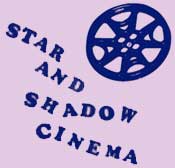Matango
Dir. Ishirō Honda, Japanese w. Eng subtitles, Japan, 1963
-
Sun 23 September 2012 // 19:30
/ Cinema
________________________________________________
“They are all dead… every one of them. No… I am the only one dead. It’s true. The others are still alive. Why didn’t they return, you ask? If you listen to what I tell you, it will probably convince you that I am insane, huh?”
BETRAYAL!
DECEIT!
INDESCRIBABLE HORROR!!!
THE FILM WILL NEVER CEASE TO TERRIFY YOU!!!!!!
______________________________________________________
PEOPLE DESPERATELY HUNGRY EATING WEIRD MUSHROOMS
Better known to Americans as ATTACK OF THE MUSHROOM PEOPLE, MATANGO revolves around an array of characters on a hedonistic yachting trip accidentally stranded on an island without food.
Living in an abandoned shipwreck covered in moss and fungus, the characters are severely tested by hunger and desire. Between the dwindling provisions, simmering resentments and sexual tensions, they weaken one by one and consume the prolific and prodigious fungi despite well-founded fears that the mushrooms degenerate the nervous system.
The “laughing mushrooms,” as they are called provide a sense of well-being and take away the hunger, but gradually transform the diner into a walking shitake with a bad attitude and a “come join us” agenda.
_________________________________________________________
REVIEWS
"Honda’s MATANGO is probably the most significant, disturbing and influential of Japan’s 60s horror/sci-fi psychodramas." SCI FI JAPAN (http://www.scifijapan.com/articles/2007/03/22/a-more-interesting-reality-than-ours-a-close-look-at-matango/)
_________________________________________________________
ANTI-DRUG FILM?
"This story can quite clearly be read as an anti-drug parable, especially since there was much international debate about the mind altering effects of psilocybin producing mushrooms in the late 1950s and early 1960s.
At that time, hallucinogens and Zen began to be tied together loosely and trippers were showing up high in Japanese temples by the early sixties. The drug problem in Japan has never been as pressing as in America, but in Japan, psilocybin mushrooms were not illegal until 2002. (A legislative loophole meant that consuming psilocybin was illegal, but the mushrooms themselves were not and were even available in vending machines for a time.)
Whether this was on Honda’s mind or not when creating the film, the elements work in this way and it is a popular way to read the film."
SCI FI JAPAN http://www.scifijapan.com/articles/2007/03/22/a-more-interesting-reality-than-ours-a-close-look-at-matango/
______________________________________________
THE VOICE IN THE NIGHT: The Story that Inspired MATANGO
In 1907, British author William Hope Hodgson wrote the short story The Voice in the Night. The story was later filmed twice; first in a faithful adaptation for Episode 24 of the American TV anthology SUSPICION, which was broadcast on the NBC network on March 24, 1958. The episode was directed by Arthur Hiller and starred James Coburn, Barbara Rush, James Donald and Patrick Macnee. Five years later, Toho would use The Voice in the Nightas the basis for their horror classic MATANGO.
This is how THE VOICE OF THE NIGHT starts:
“It was a dark, starless night. We were becalmed in the Northern Pacific. Our exact position I do not know; for the sun had been hidden during the course of a weary, breathless week, by a thin haze which had seemed to float above us, about the height of our mastheads, at whiles descending and shrouding the surrounding sea.”
And you can read the rest here… http://www.scifijapan.com/articles/2007/03/22/a-more-interesting-reality-than-ours-a-close-look-at-matango/
__________________________________________________________________
WATCH THE 2ND BEST TRAILER SINCE THE INVENTION OF THE TOASTER
http://www.youtube.com/watch?v=sVyRYjJoZfc
________________________________________________________
Tickets
On the night: £5 / £3.50 - Or Advance tickets: £4.50 / £3 here http://www.wegottickets.com/event/180519
___________________________________________________________
Organised in collaboration with Zipangu Fest (http://zipangufest.com/), with support from The Great Britain Sasakawa Foundation (http://www.gbsf.org.uk/)
